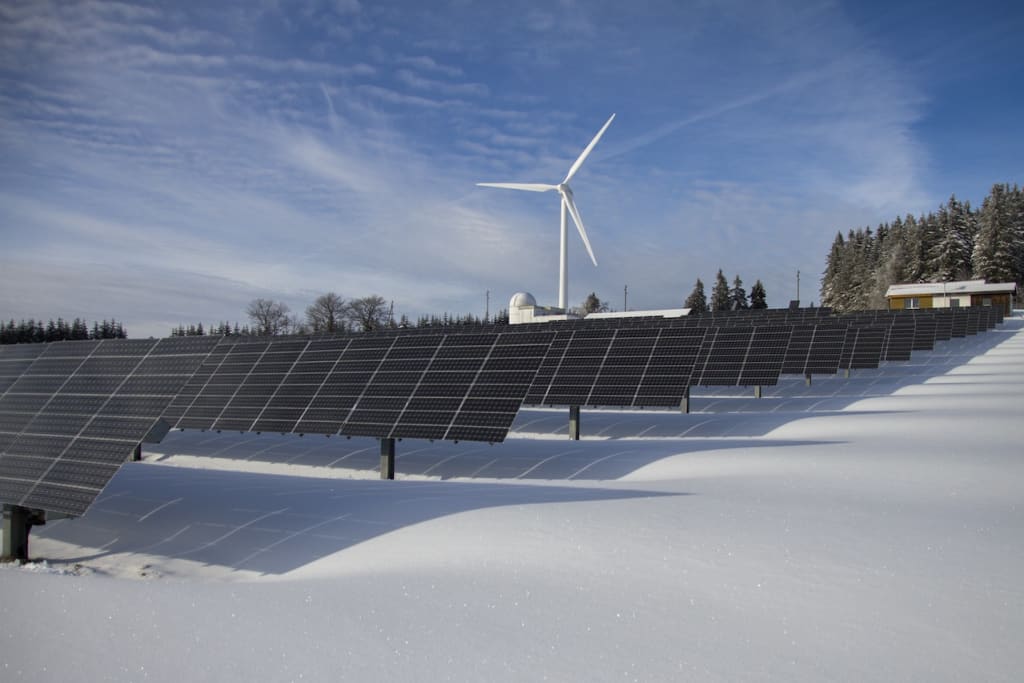The Benefits of Renewable Energy: Powering a Sustainable Future
Towards a Sustainable Future

Introduction:
As the world grapples with the challenges of climate change and depleting fossil fuel reserves, renewable energy sources have emerged as a vital solution for a sustainable future. Renewable energy harnesses the power of natural resources such as sunlight, wind, water, and geothermal heat, providing an array of benefits that extend far beyond environmental considerations. This article explores the numerous advantages of renewable energy and highlights its potential to transform our world.
Mitigating Climate Change:
One of the most significant benefits of renewable energy is its ability to combat climate change. Unlike fossil fuels, renewable sources do not release greenhouse gases during operation, minimizing carbon emissions and reducing the overall carbon footprint. By replacing coal, oil, and gas with renewable alternatives, we can significantly reduce global warming and slow down the detrimental effects of climate change.
Environmental Preservation:
Renewable energy sources have minimal environmental impact compared to traditional energy generation methods. Solar and wind power systems, for example, produce clean energy without polluting the air, water, or soil. This not only preserves delicate ecosystems but also safeguards human health by reducing pollution-related diseases and respiratory ailments caused by fossil fuel emissions.
Energy Security and Independence:
Renewable energy offers the opportunity to enhance energy security and reduce dependence on foreign oil and gas. By harnessing domestic renewable resources, countries can become self-sufficient in meeting their energy needs. This shift to renewable sources can strengthen national economies, improve geopolitical stability, and reduce vulnerability to price fluctuations and supply disruptions associated with fossil fuel markets.
Job Creation and Economic Growth:
The renewable energy sector has proven to be a significant driver of job creation and economic growth. The transition to renewable sources stimulates investment and generates employment opportunities in manufacturing, construction, installation, operation, and maintenance. Studies have shown that renewable energy industries create more jobs per unit of energy produced compared to fossil fuel sectors, fostering a sustainable economy.
Cost-Effectiveness and Energy Affordability:
Renewable energy costs have rapidly declined in recent years, making it increasingly cost-competitive with fossil fuels. The falling prices of solar panels, wind turbines, and energy storage systems have made renewable technologies more accessible to individuals, businesses, and governments. This not only reduces electricity bills for consumers but also allows developing nations to expand energy access without relying on costly fossil fuel infrastructure.
Diversification of Energy Sources:
Over-reliance on a single energy source poses risks to energy security and stability. Renewable energy provides a diversified portfolio of energy sources, reducing vulnerability to price volatility and supply disruptions. By combining various renewable technologies such as solar, wind, hydro, and geothermal, nations can create a resilient energy system that is less susceptible to geopolitical tensions and resource scarcity.
Sustainable Rural Development:
Renewable energy brings trans-formative benefits to rural and remote areas. Off-grid renewable solutions enable access to electricity in regions where traditional power infrastructure is challenging to establish. This fosters rural development by improving education, healthcare, communication, and economic opportunities. Renewable energy empowers communities and drives inclusive growth, bridging the energy gap between urban and rural areas.
Technological Innovation and Research:
The pursuit of renewable energy solutions fuels technological innovation and research. Scientists, engineers, and entrepreneurs are continually developing advanced technologies to improve the efficiency, reliability, and scalability of renewable systems. These innovations have ripple effects beyond the energy sector, driving advancements in energy storage, grid integration, and sustainable transportation, further accelerating the transition to a sustainable future.
Conclusion:
Renewable energy offers a multitude of benefits that extend beyond environmental considerations. From mitigating climate change and preserving ecosystems to fostering economic growth and energy security, the advantages of renewable sources are evident. Embracing renewable energy is crucial for powering





Comments
There are no comments for this story
Be the first to respond and start the conversation.